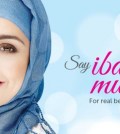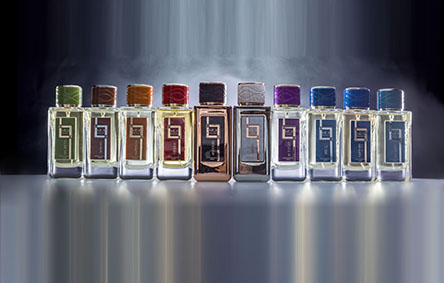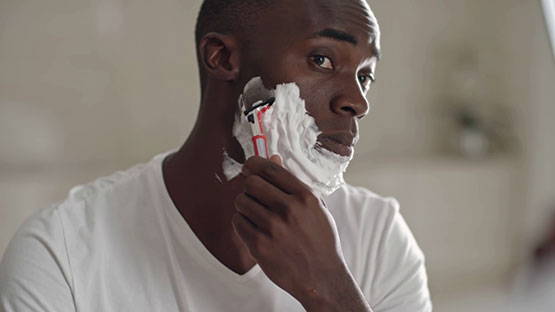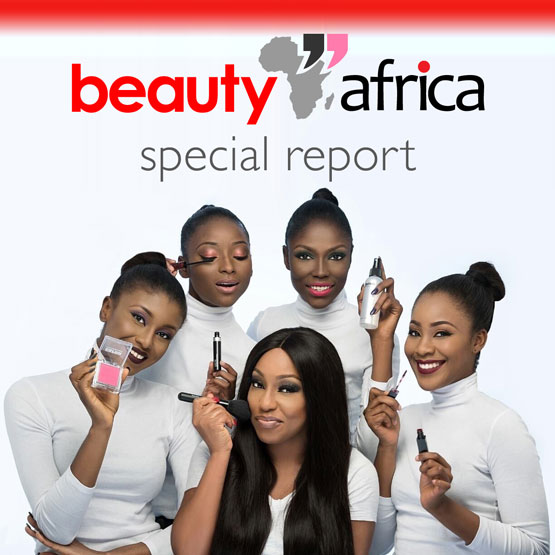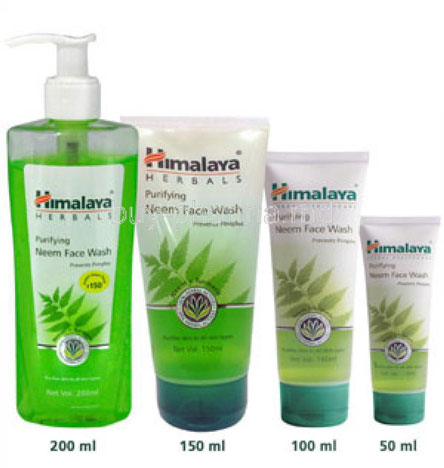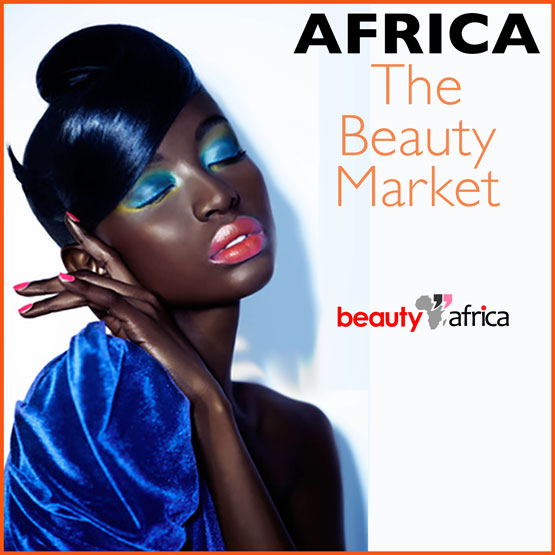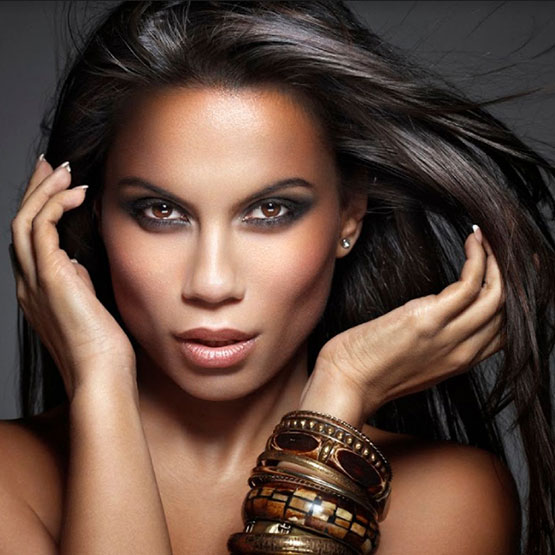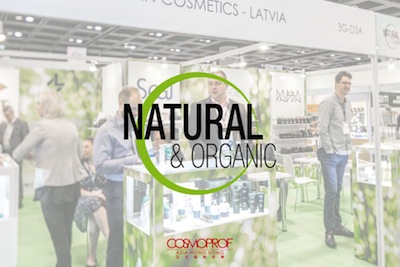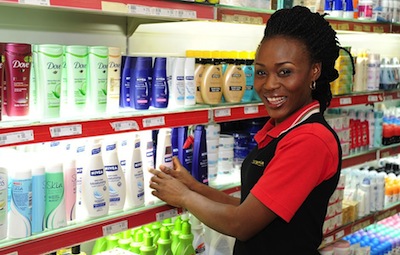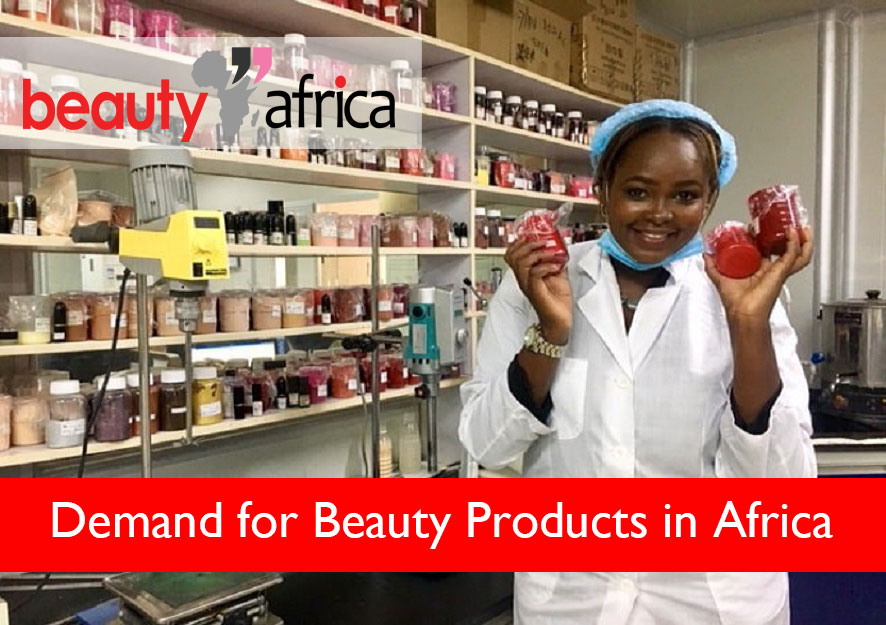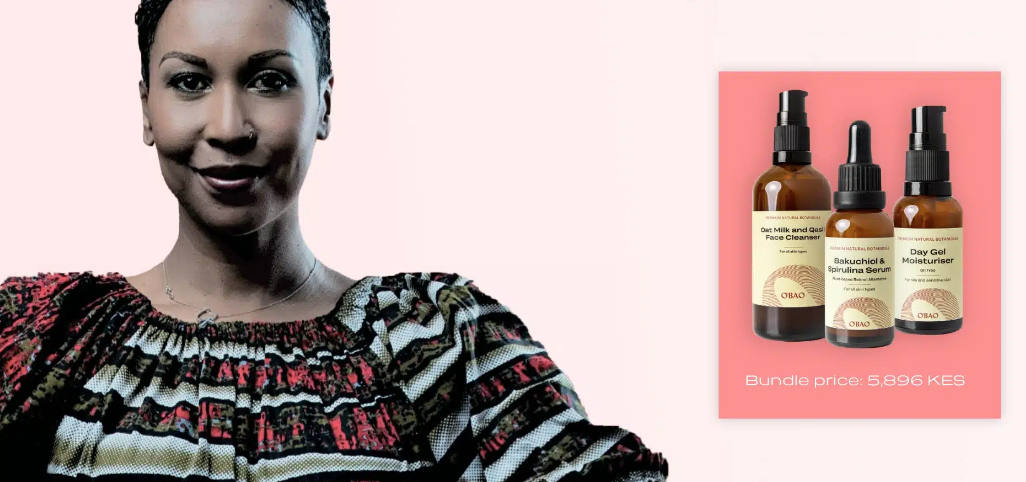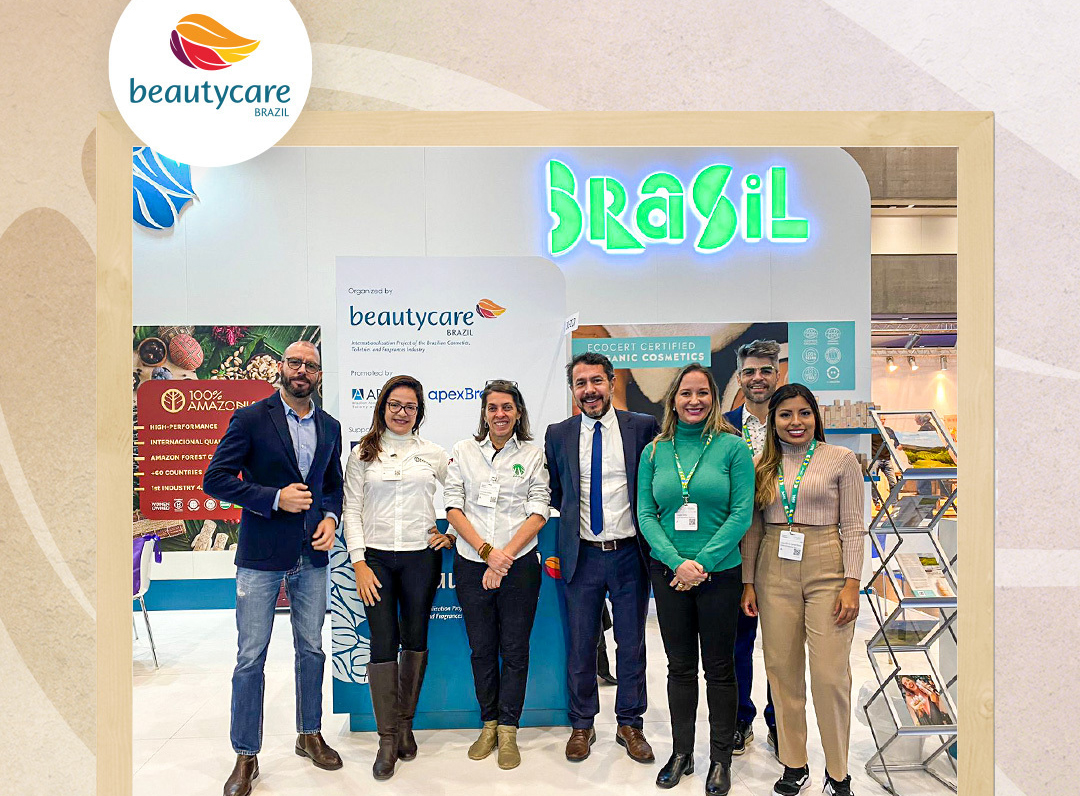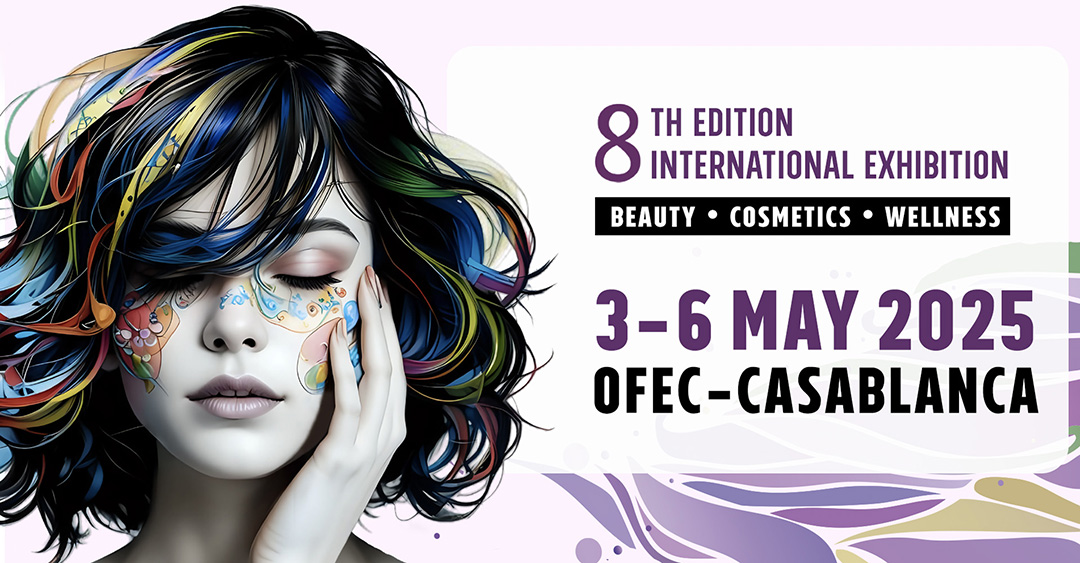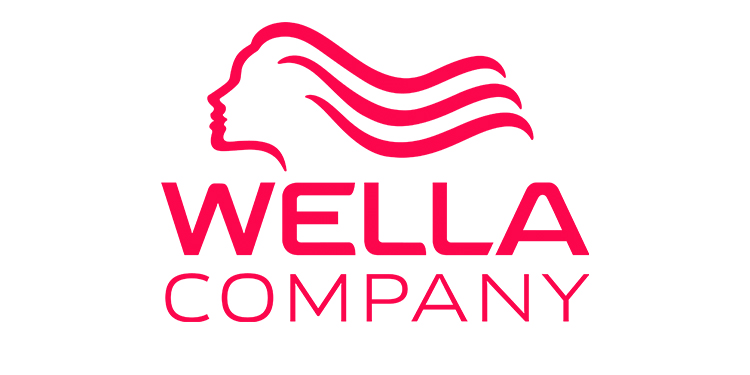African Beauty Market: Africa's booming beauty and cosmetics industry
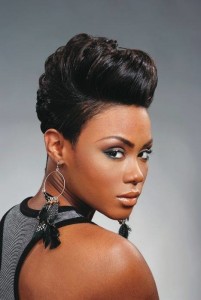 Why is the business of cosmetics, beauty and personal care products in Africa booming? Africa beauty market is one of the most lucrative businesses too. Why?
Why is the business of cosmetics, beauty and personal care products in Africa booming? Africa beauty market is one of the most lucrative businesses too. Why?
According to market research, the beauty industry in the Middle East and Africa was estimated at about $30 billion in 2023. Of this figure, South Africa alone represented $6 billion; Nigeria and Kenya are second and third among sub-Saharan nations, with Kenya’s market totalling more than $450 million.
In comparison, the Asian market was estimated at $150 billion in the same year.
As a result, the outlook for the African cosmetics, beauty and personal care products market is very positive for the coming years as there is so much room for it to grow and become at par with the Asian markets. Let’s explore the fundamental reasons for the huge and growing demand for beauty and personal care products across Africa.
#1 – Cosmetic products have become a basic and daily need
If you’re like most people, you’ve probably had the wrong notion about the term ‘cosmetics’ for a very long time. Well, it’s time to erase it:
Technically, cosmetics are any substances used to enhance the appearance and odour of the human body. This includes a wide range of body and skin care products from ordinary bathing soaps and tooth paste to designer perfumes and make-up.
In fact, any product used to clean, beautify and promote the attractiveness of the human body is a cosmetic product. If you do not use any product that falls into this definition in your daily life, it’s likely you’re a cave man or some ape-looking creature living in a thick forest!
In today’s world, cosmetics have become a very basic need. Everyone, including poor people, will go out of their way to enhance the way they look, feel and smell.
Besides helping us with our personal hygiene, cosmetics have become vital to our self-esteem and largely determine how other people treat us and our ability to influence them.
It’s not a surprise that beauty and skin care products are the fastest selling items in Africa after food!
That modern Africans have a basic need for beauty and personal care products is only one part of the equation. Africa’s current population of roughly one billion people is expected to rise to 2.3 million by 2050. This can only mean one thing – more demand for beauty and personal care products! (photo credit: blackdoctor.org)
#2 – Africa’s young and fashion-conscious ‘middle class’ population is fuelling demand
Africa is home to the youngest population in the world with more than half of its one billion people below the age of 20.
What is more interesting is the presence of a large and growing ‘middle class’.
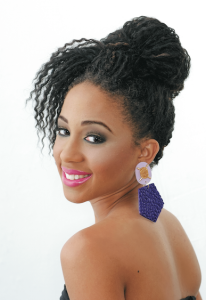 The African Development Bank describes ‘middle class’ as those who spend between $2 to $20 a day. At the moment, there are more than 300 million people on the continent who fit into this category.
The African Development Bank describes ‘middle class’ as those who spend between $2 to $20 a day. At the moment, there are more than 300 million people on the continent who fit into this category.
A significant majority of Africans in the middle class are young and educated city people who are very aware of (and heavily influenced by) modern trends in grooming, fashion and western culture.
Because most of them hold salaried jobs or own a small business, these guys and ladies have more spending money at their disposal. Due to their tastes and desire for the ‘feel good factor’ they are driving the demand for consumer products like beauty and skin care products across Africa!
According to a recent Deloitte report,
“Africa’s middle class has tripled over the last 30 years, with one in three people now considered to be living above the poverty line – but not among the wealthy. The current trend suggests that the African middle class will grow to 1.1 billion (42%) by the year 2060. As African economies are growing (7 of the 10 fastest growing in the world are African), the wealth is trickling down and Africa now has the fastest growing middle class in the world.”
#3 – African women now have more spending power
In our society, women experience a greater burden and pressure to look beautiful.
This is the main reason why hair products and extensions, skin care and make-up products are the largest and most lucrative segments of the global cosmetics market. Of course, these segments are targeted at, and dominated by, female consumers.
Every year, in addition to other basic cosmetics, women around the world are the biggest spenders on all kinds of make-up, skin care and hair products. (photo credit: blackhairinformation.com)
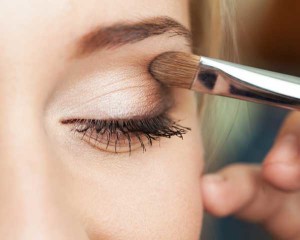 More African women, especially in the middle class, now have more spending power. Higher education is allowing many middle class African women to pursue promising careers (like men) in the workplace. As a result, more women on our continent have the extra income that gives them the spending power to ‘invest’ in the latest fashion trends – and a significant chunk of this spending goes to beauty and personal care products.
More African women, especially in the middle class, now have more spending power. Higher education is allowing many middle class African women to pursue promising careers (like men) in the workplace. As a result, more women on our continent have the extra income that gives them the spending power to ‘invest’ in the latest fashion trends – and a significant chunk of this spending goes to beauty and personal care products.
In addition to the income women earn themselves, there is also a ‘male support factor’ at play in the huge spending on cosmetic products.
Many women are wholly or partially supported by partners (husbands, boyfriends, uncles and brothers) who spend directly and indirectly on beauty products either by giving cash or buying these cosmetics as ‘gift’ items.
As long as Africa’s economic growth continues to look up and the size of the middle class continues to grow, these direct and indirect sources of female spending power will get stronger.
Major cosmetics, beauty and personal care product categories entrepreneurs should focus on in Africa
Now that we have explored the reasons behind Africa’s huge and growing demand for cosmetic products, it’s time to look at the major categories of this market and the products people are spending on.
The cosmetics industry (also known as the beauty industry or personal care industry) can be broken down into five major categories as follows:
#1 – Hair care
According to general estimates, up to 20 percent of cosmetic products sold on the market are hair care products.
This category includes all products used to make human hair clean and attractive – shampoos, pomade, hair gels, conditioners, coloring and dyes, relaxers and hair styling products.
The biggest spenders in this category are beauty salons and barbershops and women who use a wide range of these products.
Recent fashion trends have also increased the amount of spending by men in this category with the growing popularity of dreadlocks, Sporting Waves and ‘afro’ hair styles which require more hair care and attention.
#2 – Skin care
The skin care products category is the largest and most assorted segment of the cosmetic market with several competing formulas, products and brands.
The needs of different types of human skin – normal, dry, oily and sensitive skin – is largely responsible for the size and variety of skin care products in the African market, and there are lots of local and international brands releasing new and more attractive products every year!
 Nearly 30 percent of all cosmetic products sold in this market every year are in the skin care category which includes body lotions, skin moisturizers, cleansers, toners, anti-acne, anti-aging and facial products.
Nearly 30 percent of all cosmetic products sold in this market every year are in the skin care category which includes body lotions, skin moisturizers, cleansers, toners, anti-acne, anti-aging and facial products.
The growing trend of using skin lightening or ‘bleaching’ products among young African women and men is also feeding the frenzy of demand that has made the skin care products category a multi-billion dollar business. (photo credit: skincarecentral.co)
According to this BBC article, the World Health Organization reported that Africans are some of the highest users of skin bleaching products: 77 percent of Nigerian women use these products on a regular basis, followed by Togo with 59 percent; South Africa with 35 percent; and Mali at 25 percent.
To fight the negative impact of bleaching products, innovative entrepreneurs like Ghana’s Grace Amey-Obeng (Forever Claire products) have built very successful businesses by providing products that help to treat and restore skin damaged by bleaching.
#3 – Make up
Make up (which is also commonly referred to as ‘colour cosmetics’ or ‘decorative cosmetics’) includes a wide range of products used especially by women on the face, eyes, lips and nails.
This category is so segmented that there are very many niches catering to several specific needs.
The common products in this category are: lipsticks, concealers, foundation, face powder, blushes, mascara, eyeliners, nail polish and make up removers.
In addition to many international designer brands in the market (such as Mary Kay, Maybelline, Clinique etc), several African-grown and promising makeup brands like Nigeria’s House of Tara and Kenya’s Suzie Beauty line are becoming very successful. (photo credit: cityline.ca)
#4 – Personal care and Toiletries
The products in this category are primarily used to clean the body and maintain personal hygiene, and not necessarily for beautification.
The products here fall into the Fast Moving Consumer Goods (FMCG) group due to their high demand and how quickly they are consumed.
This category includes bathing soaps (liquids and bars), toothpaste, shaving cream, hair removal preparations (depilatories), deodorants, antiperspirants, sunscreens, toilet paper and several other items used in the bathroom.
#5 – Fragrances
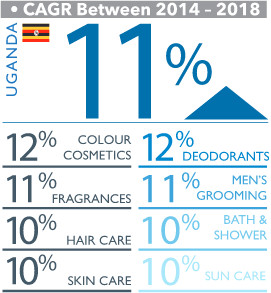 The fragrances category of the cosmetics market may sell the least volumes but surely makes the most profit of all the product categories in this market.
The fragrances category of the cosmetics market may sell the least volumes but surely makes the most profit of all the product categories in this market.
‘Fragrances’ include all mixtures of essential oils and aromatic compounds that give the human body a pleasant scent.
Common fragrance classes in the market include – Perfumes, Eau de Toilette, Eau de Parfum, Cologne and aftershave.
If you’d love to know the difference between these fragrance classes, we found this great article to help you!
Of all the cosmetic groups, the fragrances category is tightly dominated by major designer and celebrity brands. Most of the available versions in our open markets are commonly knockoffs. (photo credit: amoperfumes.blogspot.com)
How to start your own cosmetic, beauty and personal care products business in Africa
Regardless of the amount of capital you have or how much you know about beauty and personal care products, this is a business you can operate on your own, from your home, and on a low (or huge) budget.
There are two major ways you can start your own cosmetics products business – make your own products; or sell for others.
Option 1 – Make your own beauty and personal care products
It’s true our markets are crowded with all sorts of local and international beauty and personal care products. However, there are segments of the market that have different needs and preferences that you can build a profitable cosmetics business on.
These niches include people who prefer local herbs and ingredients in their hair creams or body lotions, ingredients suited to black skin, spot and blemish removal remedies, anti-aging treatments… and all sorts!
This is the edge African cosmetic products have over foreign brands. We have a different climate, skin/hair texture, tastes and preferences that most of foreign products cannot cater to.
The African Black Soap (or Dudu Osun as it’s popularly called) is a great example of a very successful and internationally loved product.
Due to its amazing ability to clear skin spots and blemishes, this product has become a hot global selling beauty product!
You really need to check out the reviews this product has received on Amazon! Africans at home and abroad (including African American and Caribbean people who share our dark skin) and even white-skinned people are among this product’s loyal customers.
Africa has lots of ingredients that can replicate the Dudu Osun success story. Shea butter, Coconut oil, and Aloe vera are just a few of many local African ingredients used in make up, hair and skin care products.
What other great beauty substances or ingredients do you know about? No matter how crude it looks, all you may just need to do is package the product in a nice way for the market. We should remind you that Dudu Osun had been in use in many parts of Africa for centuries until someone decided to transform it into an attractive and global-selling product!
If you’re seriously considering starting your own cosmetic products line, we found just the right resource that will help you.
MakingCosmetics.com has lots of interesting information that will guide you through the process of defining your product, testing formulas, manufacturing, packaging and marketing. It’s a great place to start if you’re thinking about making your own products or a full-range cosmetics product line.
Option 2 – Sell local and international brands
The African cosmetic products market accommodates huge volumes of local and foreign made products that are sold on the continent every year.
You can join the vast (and growing) distribution networks that make sure these products get from the factories (where they are produced) to the final consumers who use them.

Importers are the biggest players in the foreign brands market in Africa. These guys bring in all kinds of cosmetic products from Europe, North America, the Middle East and Asia. In fact, Dubai (United Arab Emirates) has become a hotspot for African importers to make orders for cosmetic products from across the world.
Depending on the size of the order and the brands you choose, starting the import business will require significant capital and (maybe) an import license from the government.
Wholesalers and retailers usually buy and stock products in different sizes. These products could be imported or manufactured locally.
Retailers of cosmetic products include open air markets, department stores, neighbourhood drug stores and pharmacies, beauty salons and barbershops and spas. These are essentially the places where ordinary people go to buy their beauty and personal care products.
Depending on your location, marketing strategies and the competition, these can be very lucrative businesses you may want to explore.
Interested in the cosmetics, beauty and personal care products business?
We have explored the exciting market for beauty and personal care products in Africa and the opportunities that entrepreneurs like you can explore. All indications point to a large and growing demand for these products on our continent now and in the future.
As you have seen, several African entrepreneurs and products are emerging as huge successes in this space.
We believe that the opportunities identified in this article can be taken further by your creativity and energy. If you are confident a business in Africa’s cosmetic products market will work for you, it’s important that you start taking action as soon as possible.




